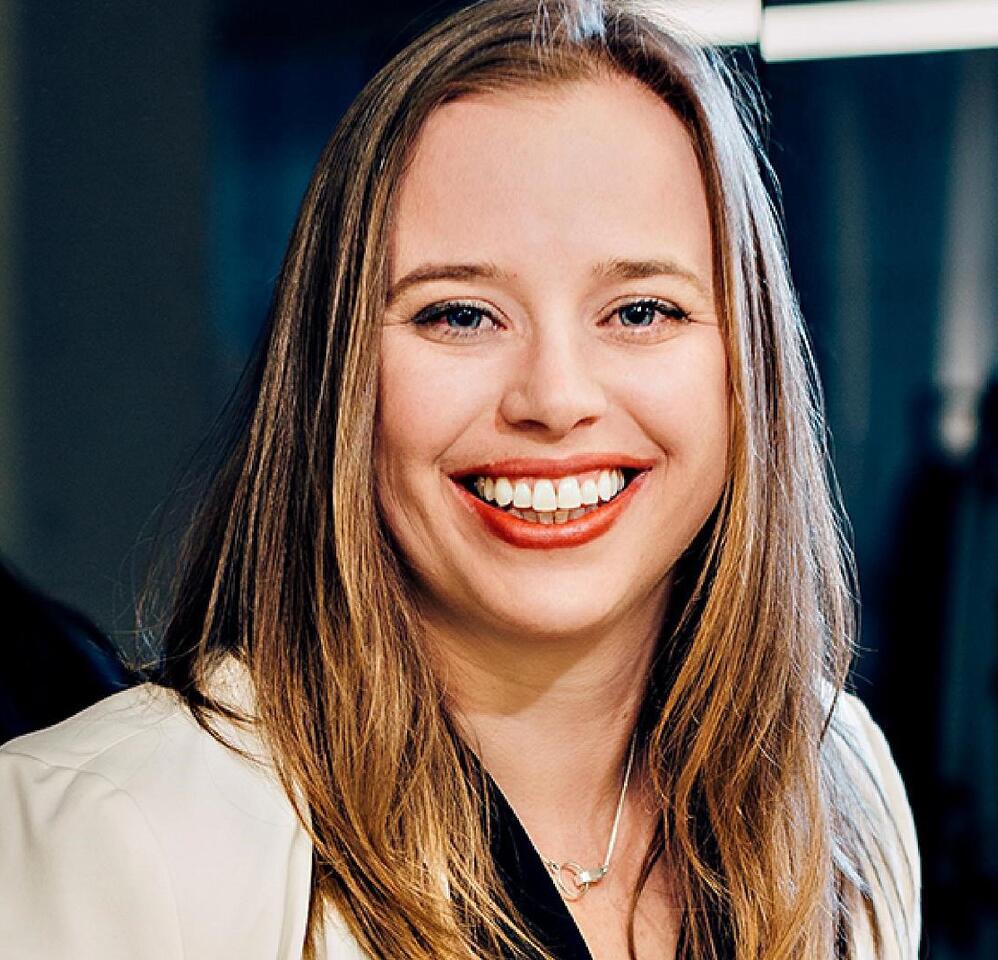
Meredith Adler, BA’12
Briefly describe your career journey so far.
My career has been a combination of three themes: youth empowerment, international work and energy. Student Energy works at the intersection of both and really combines both of my interests as we’re a global charity with a network of 50,000 youth in over 130 countries. We are building the next generation of energy leaders who will accelerate our transition to a sustainable energy future.
I actually ran my first youth leadership conference when I was 16 and have been really interested in youth empowerment ever since. I was an exchange student to Argentina right out of high school. Then worked on youth empowerment projects throughout my undergraduate degree, both in Canada and abroad, and my first job out of university was with the Student Conservation Association supervising trail crews of high-school aged students.
A key piece of my career development was the job I had on-campus at UBC working as a Student Ambassador, the people who give campus tours, and then moving on to be a Senior Student Ambassador. This was a huge skill-building opportunity for me as it involved a lot of intercultural communications, working with diverse groups of people, training others and adapting systems.
Many of the techniques I use to manage my organization today I learned from working for the program, and can honestly say my career would not have grown so fast without the training I got there.
My first full-time professional job out of University was with Clean Energy Canada, an energy think tank as a Communications Assistant. This also was a big moment in my career development as it is where I learned a lot about energy, communications, and how non-profits work.
While working there I saw the posting for a job at Student Energy. Immediately I was excited because it combined three things I really cared about: youth, energy, and a global community. Just four months after being hired as the community manager, the previous executive director left her position, and I was promoted to the role. That was about four years ago and since then I’ve used the foundation of the organization plus the skills I brought from my past experience to quadruple the size of the organization.
What do you do to continue developing your professional or career development skills?
One thing I really focus on is keeping Student Energy learning as an organization. I really encourage our staff to take on new projects where they can learn by doing and reach outside their normal comfort zones, and I work to do the same.
This normally lands us in interesting places going to events or learning about ideas from different industries. That’s something I find to be very important as people working in climate change can sometimes be very insular and form a bit of an echo chamber – which really isn’t helpful when trying to engage new types of people in new ways. So, as much as possible, I work to get to interact with new types of people in new ways to increase the multidisciplinary nature of our work.
Describe a time you were able to transform a failure or a setback into a valuable learning experience.
My biggest setback was working to get hired onto a job after university. It took about four months of applying with very few interviews before I got the role with Clean Energy Canada and the process was incredibly discouraging – not getting called back for very entry-level positions.
I realized that was happening because I had never learned to market my skills or articulate what it was that I had to offer. During my degree in Geography, no professor had ever mentioned anything about how to actually get a job post-grad and it took a lot of trial and error to get people to take me seriously.
Ultimately, I learned that you need to be bold and go for it. No one is really all that qualified when they apply for their first job, but you just have to work harder at it and make a case for why the people interviewing can’t turn you down. I’m a big fan of the “fake it till you make it” mentality.
What is the best career advice you’ve received?
Don’t be paralyzed by choice. So often people can be really caught up in all of the options in front of them that they’ll become too overwhelmed to choose any or will become obsessive about finding the perfect opportunity.
The reality is that the perfect opportunity doesn’t exist, every job has a great potential for learning – even if what you’re learning is that it isn’t a good fit for you. Instead of spending a lot of time stressing about what your purpose is or if something fits into your 5-year plan sometimes you need to just go for it, see what you learn, and then figure out where to go from there.
Who is someone you look up to or is your role model?
I wouldn’t say that I have one “role model,” but there are a lot of things that inspire me. My main source of inspiration are the young people Student Energy works with. They are so intelligent, innovative and hopeful. I’m constantly amazed at the scale of projects they can pull off, the creative ideas they can execute, and how much passion they have for solving climate change and helping people.
The climate world can be very “doom and gloom,” but I have the best job ever because I work with all the people who know we can find solutions and who are prepared to deliver on them.





























